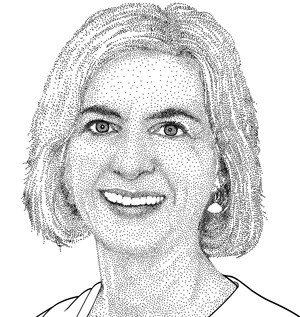Nobel laureate Jennifer Doudna, PhD, winner of the 2020 Vanderbilt Prize in Biomedical Science, will deliver the next web-based Discovery Lecture on Thursday, July 22.

Doudna, recipient of the 2020 Nobel Prize in Chemistry for the co-development of the revolutionary genome editing technology known as CRISPR-Cas9, will discuss “CRISPR: the Science and Opportunity of Genome Editing.”
Her lecture, which is sponsored by the Offices of the Executive Vice President for Research and the Dean of Basic Sciences, will begin at 2:35 p.m. CDT via Zoom. To attend, register in advance here.
Doudna is founder and president of the Innovative Genomics Institute, holder of Li Ka Shing Chancellor’s Chair in Biomedical and Health Sciences, and professor of Chemistry and of Molecular and Cell Biology at the University of California, Berkeley.
She is the second Vanderbilt Prize recipient to subsequently win a Nobel Prize. Elizabeth Blackburn, PhD, the 2007 recipient, was one of three researchers awarded the Nobel Prize in Physiology or Medicine in 2009.
Established in 2006 by the Vanderbilt University School of Medicine, the Vanderbilt Prize recognizes women scientists with a stellar record of research accomplishments who also have made significant contributions to mentoring other women in science.
In 2012 Doudna and her colleagues, including Emmanuelle Charpentier, PhD, with whom she shared the Nobel Prize, published fundamental science about CRISPR, a natural defense mechanism used by bacteria to protect their genomes from invading viruses and plasmids.
They showed how a CRISPR-associated enzyme called Cas9, when guided by small RNA sequences, can be used for site-specific genome engineering in animals and plants.
Less than eight years later, preliminary findings released from clinical trials suggested that CRISPR-Cas9 could “correct” two devastating genetic blood disorders, sickle cell anemia and beta thalassemia. Current research continues to explore the biochemical basis for genome editing, and to develop effective applications in medicine and agriculture.
In her lecture, Doudna will discuss the development of CRISPR-based diagnostics technology to address the current coronavirus pandemic and improve future preparedness.
She also will present ideas for a future of science that incorporates lessons from the pandemic including collaboration, teamwork and public access to scientific progress.
For a complete schedule of Discovery Lectures, archived video of previous lectures, and the webinar registration link, go to https://www.vumc.org/dls.












